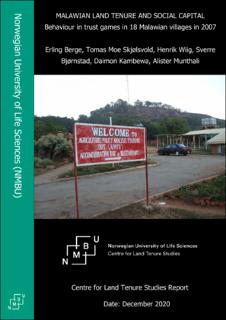Children’s property and inheritance rights and their livelihoods: the context of HIV and AIDS in Southern and East Africa
Focuses on legal and institutional aspects of children’s property and inheritance rights in Southern and East Africa. Discusses violations of those rights and how the spread of HIV and AIDS has contributed to this. Assesses some norms of customary law that aim to protect these rights and some which complicate and limit children’s ability to maintain their rights. Reviews and assesses selection of international and national laws. Identifies several gaps in law and policy. Reviews National Plans of Action for orphans and vulnerable children.




